Written by Alan Kelly, Bōde’s Chief Economist
To understand what’s happening in the real estate market you have to look at supply and demand.
The best proxies for supply and demand are:
Supply
- New supply: New Listings (i.e. the number of homes recently listed for sale)
- Total supply: Inventory (i.e. the total number of homes listed for sale)
Demand
- Sales (i.e. the number of homes recently sold)
Supply & Demand
- Months of Supply (i.e. the number of months it would take to sell all current inventory at the current rate of sale)
These metrics are the best indicators of the health of the real estate market. Let’s look at what they show us.
Edmonton continues to see demand outpace new supply in the aftermath of the COVID-19 outbreak.
New listings in August were up 5% while sales were up 20% vs. the previous 3 years. Sales have been on a strong trend since July 2020 but in recent months they have started to come back down closer to normal levels.
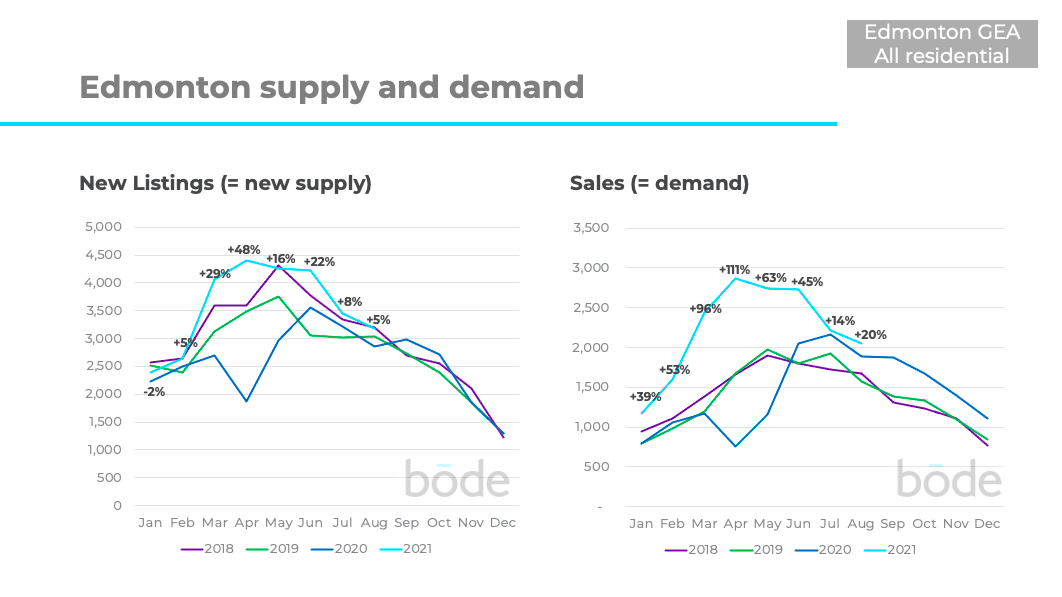
The total number of homes for sale is down 14% compared to the average of the previous 3 years.
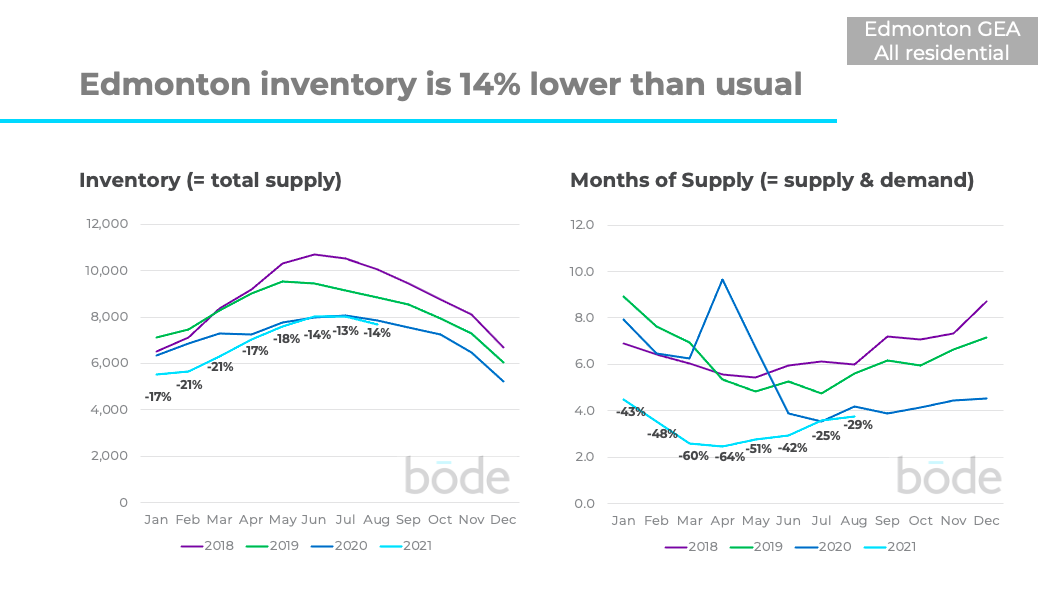
The combination of low supply and more demand has kept ‘months of supply’ low at 3.7 months which is down 29% vs the previous 3 years.
Fewer months of supply generally makes conditions more favourable for sellers, while higher months of supply is more favourable for buyers.
Overall, Edmonton prices have been slowly increasing since December 2019, however they have been increasing more quickly in recent months. They’re now back at 2015 levels.
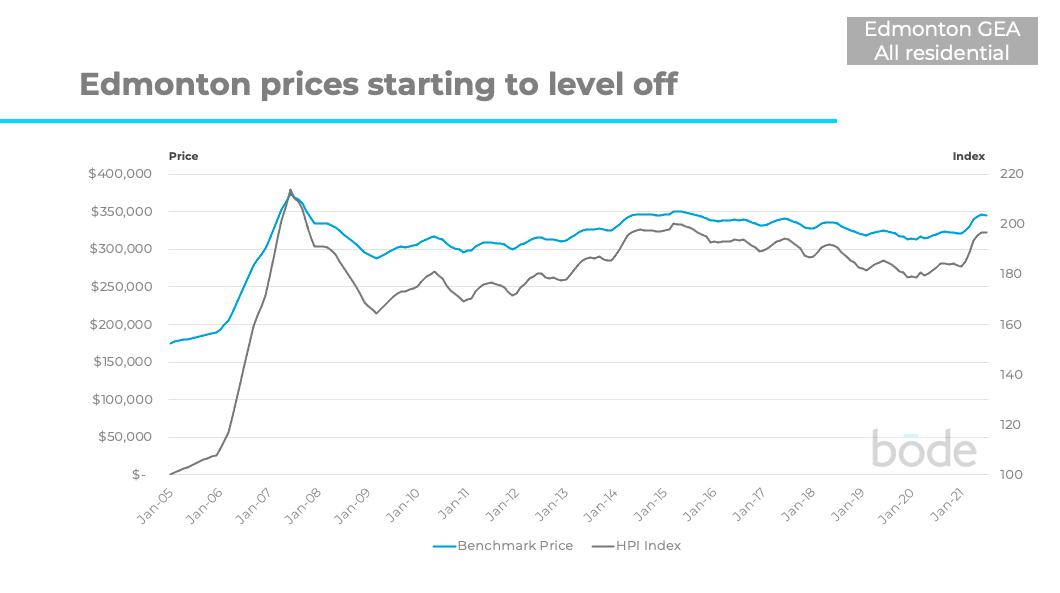
What does this mean for sellers?
Right now supply is low relative to previous years, and demand is high which means it is a good time to sell your home. Sellers who price their home well will be able to sell quickly. However, your specific property value will be determined by market forces both within your community and against similar active listings. To find out what supply and demand look like for your specific community, click here.
What does this mean for buyers?
There are currently fewer homes for sale than there have been in previous years. This means active buyers need to move fast to beat other buyers to available listings. One way you can move faster is by booking viewings directly through Bōde, so you don’t have to wait for a realtor to schedule your viewings.
Market conditions vary substantially by property type, community and price range
Above, we’ve looked at the overall market for Edmonton, but different segments are performing very differently. Let’s look at a few examples.
Sales for detached homes were up 9% in July vs. previous years, while new listings were up 3%.
Detached homes have generally been the best performing property type since the start of the COVID pandemic as buyers look for more space.
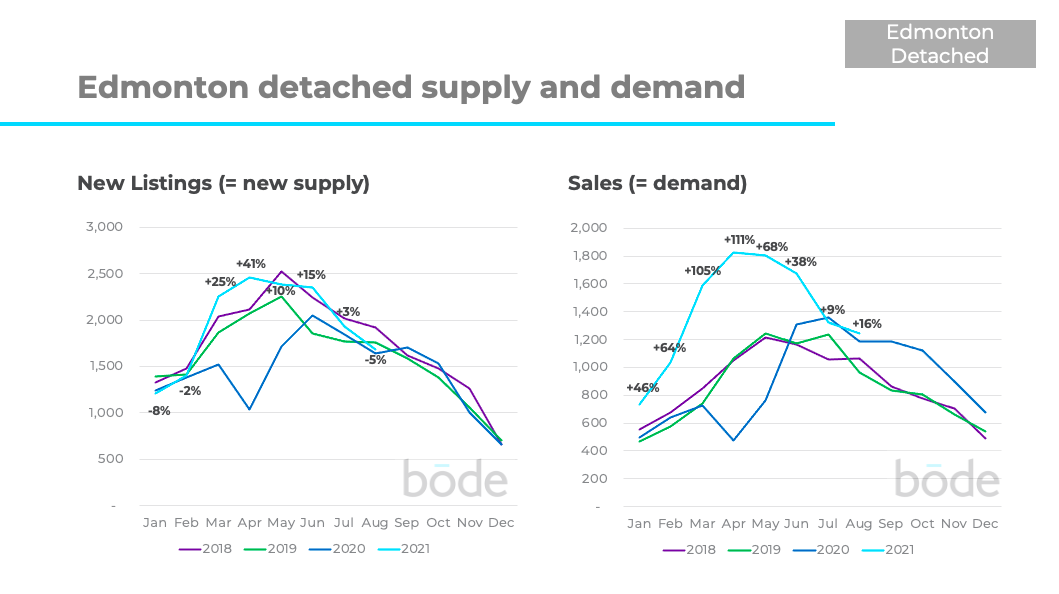
Detached prices have been slowly increasing for the past year. They’re currently back at 2007 levels.
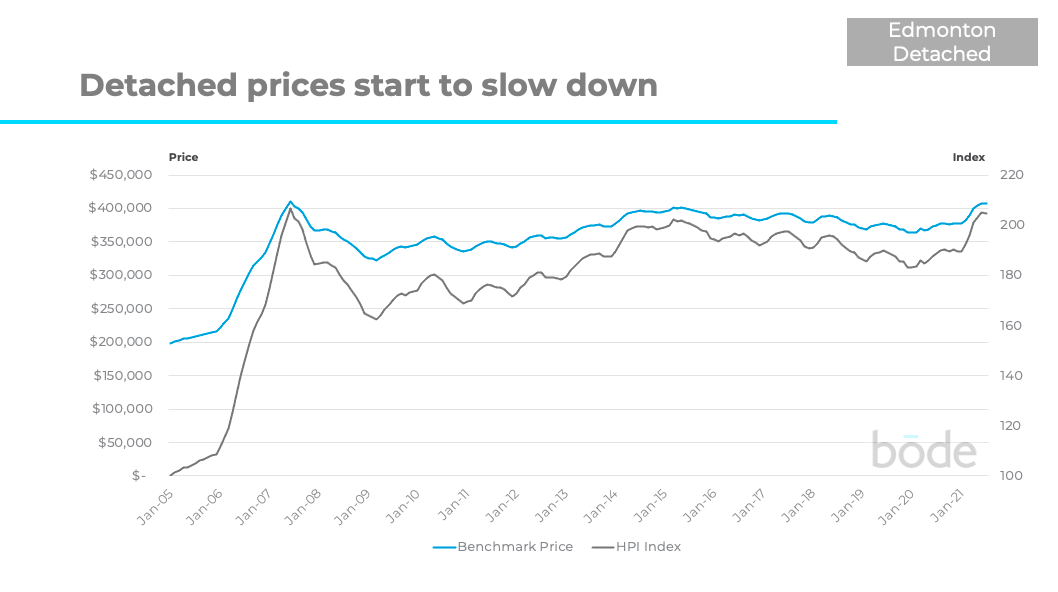
Apartments:
New listings of apartments were up 24% in August compared the average of the previous 3 years, while sales were up 21%.
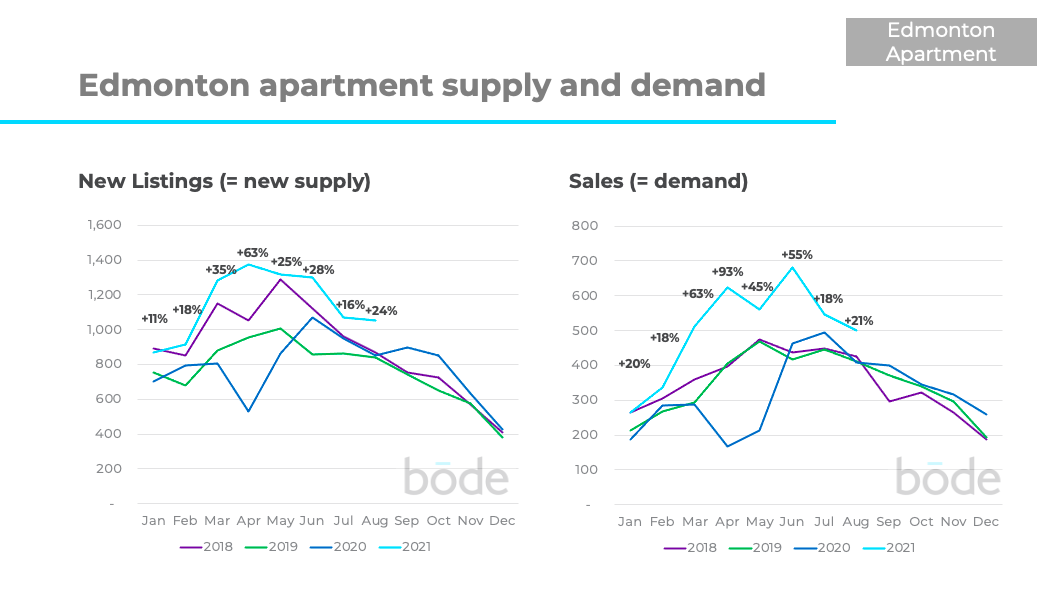
Apartment prices have been on a steady downward trend since 2015, but the last 5 months have seen a very small recovery in prices.
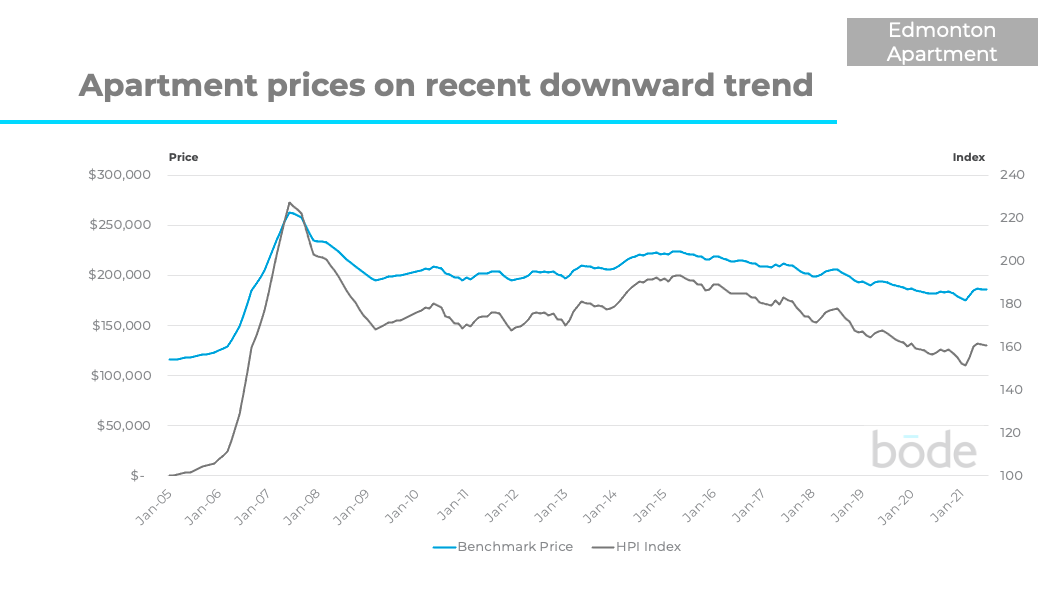
New listings of attached homes were up 17% while sales were up 44% in August (compared to previous years).
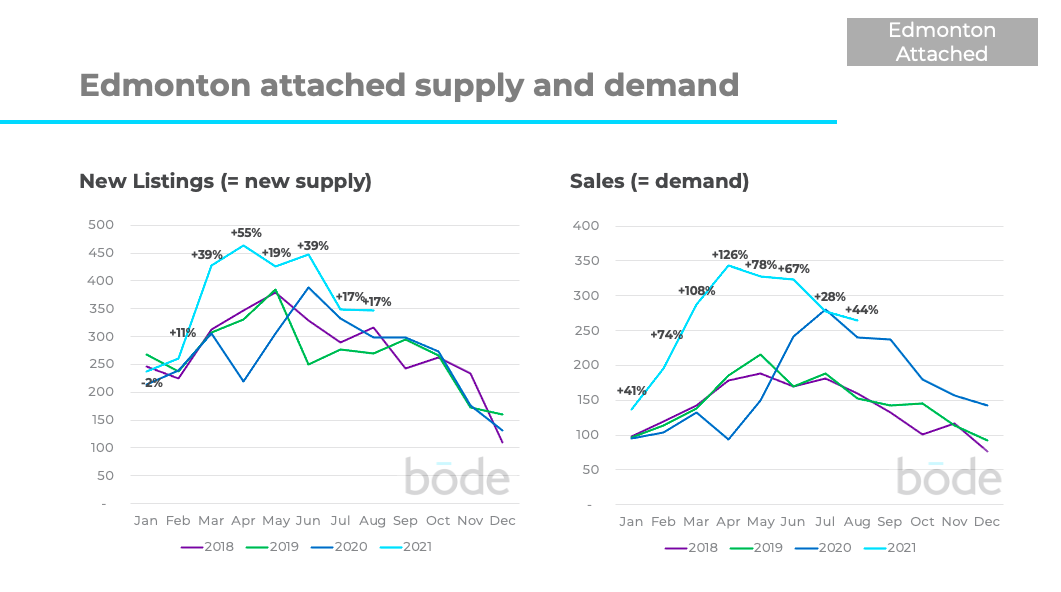
However, prices for attached homes have remained relatively flat in recent years.
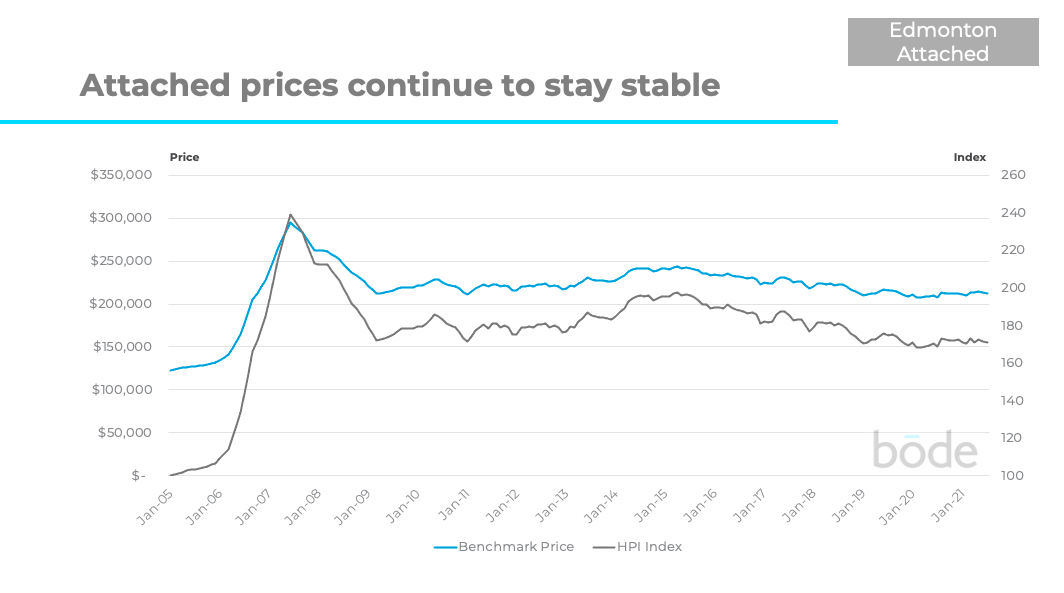
In general, you’re in a better position if you’re selling a detached or attached home right now compared to an apartment, due to less supply and greater demand.
However, what really matters is what’s happening in your specific local property market. There are some communities and price bands where detached homes are performing better/worse, and the same goes for apartments.
It’s critical to understand the dynamics in your local property market
To understand your local property market you need to look at your local data. Head over to Bōde’s new and improved Market Data dashboard, the only place where you can see all the data yourself, including being able to filter on community, property type, and price range to see exactly what’s happening where you live.
You can also see the sold price of any home that has sold in the last 11 years using Bode’s Sold Data page.


